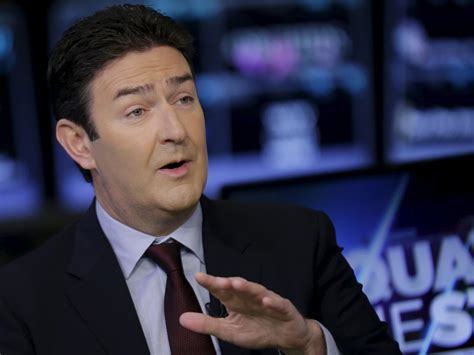A Quote by Dallas Willard
Consumer Christianity is now normative. The consumer Christian is one who utilizes the grace of God for forgiveness and the services of the church for special occasions, but does not give his or her life and innermost thoughts, feelings, and intentions over to the kingdom of the heavens. Such Christians are not inwardly transformed and not committed to it.
Related Quotes
...the kingdom of God is that invisible collection of committed Christians that transcends cultures, ideologies... and creeds- all bound by the golden commitment to say nothing and do nothing that would attack the self-esteem, the self-respect, and the dignity of any other human being, whether or not they are committed members of the kingdom of God. The dignity of the person then is the irreducible cell of true Christianity.
Christians tend to motivate others with guilt. We tend to say: You would do this if you were really committed Christians, indicating that we are committed and all that is needed is for others to become as good as we are! This is why so many churches quench the motivation of people for ministry. In our shoes, Paul would say: Remember the grace God has showered on you—what does living out and enjoying that grace look like in this situation?
Good action and thoughts produce consequences which tend to neutralize, or put a stop to, the result of evil thoughts and actions. For as we give up the life of self (and note that, like forgiveness, repentance and humility are also special cases of giving), as we abandon what the German mystics called "the I, me, mine," we make ourselves progressively capable of receiving grace. By grace we are enabled to know reality more completely, and this knowledge of reality helps us to give up more of the life of selfhood - and so on, in a mounting spiral of illumination and regeneration.
Many years ago I was driven to the conclusion that the two major causes of most emotional problems among evangelical Christians are these: the failure to understand, receive, and live into God's unconditional grace and forgiveness; and the failure to give out that unconditional love, forgiveness, and grace to other peopleWe read, we hear, we believe a good theology of grace. But that's not the way we live. The good news of the Gospel of grace has not penetrated the level of our emotions.
The emerging church movement has come to believe that the ultimate context of the spiritual aspirations of a follower of Jesus Christ is not Christianity but rather the kingdom of God. ... to believe that God is limited to it would be an attempt to manage God. If one holds that Christ is confined to Christianity, one has chosen a god that is not sovereign. Soren Kierkegaard argued that the moment one decides to become a Christian, one is liable to idolatry.
What I try to do is narrow the sermon series down to one big question. In this case the question is: What happens when grace happens? I knew I wanted to preach about grace. I just felt as if it was time for our church to be refreshed and see the beauty of God's grace - the uniqueness of the Christian grace as compared to the teachings of other world religions on forgiveness.
It is God’s will through His wonderful grace, that the prayers of His saints should be one of the great principal means of carrying on the designs of Christ’s kingdom in the world. When God has something very great to accomplish for His church, it is His will that there should precede it the extraordinary prayers of His people; as is manifest by Ezekiel 36:37. and it is revealed that, when God is about to accomplish great things for His church, He will begin by remarkably pouring out the spirit of grace and supplication (see Zechariah 12:10).
Christians have always tended to transform the Christian Revelation into a Christian religion. Christianity is said to be a religion like any other or, conversely, some Christians try to show that it is a better religion than the others. People attempt to take possession of God. Theology claims to explain everything, including the being of God. People tend to transform Christianity into a religion because the Christian faith obviously places people in an extremely uncomfortable position that of freedom guided only by love and all in the context of God's radical demand that we be holy.
Nothing in the church makes people in the church more angry than grace. It's ironic: we stumble into a party we weren't invited to and find the uninvited standing at the door making sure no other uninviteds get in. Then a strange phenomenon occurs: as soon as we are included in the party because of Jesus' irresponsible love, we decide to make grace "more responsible" by becoming self-appointed Kingdom Monitors, guarding the kingdom of God, keeping the riffraff out (which, as I understand it, are who the kingdom of God is supposed to include).









































